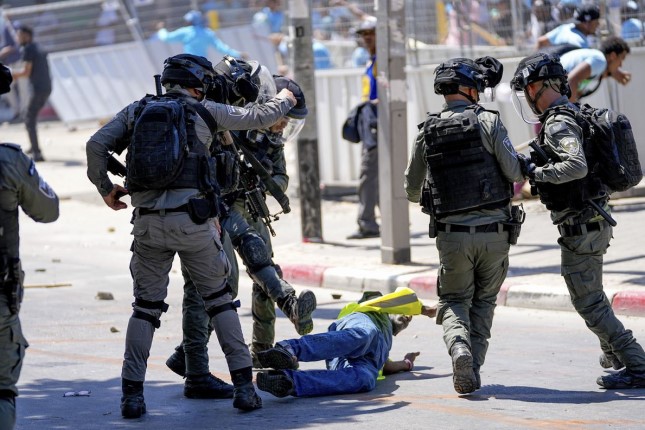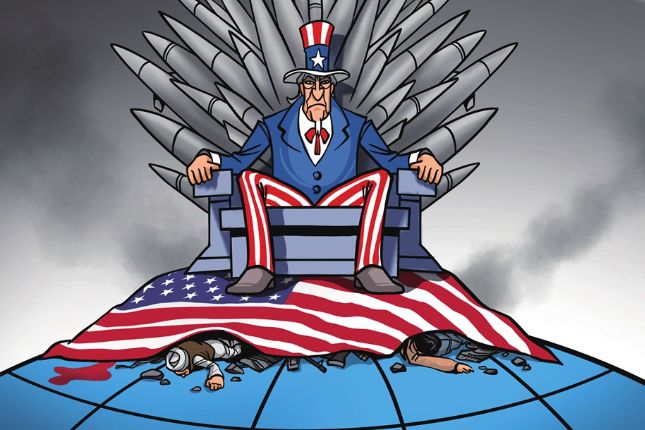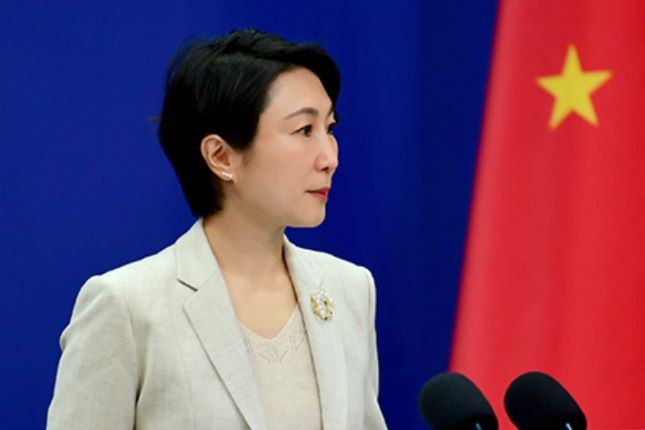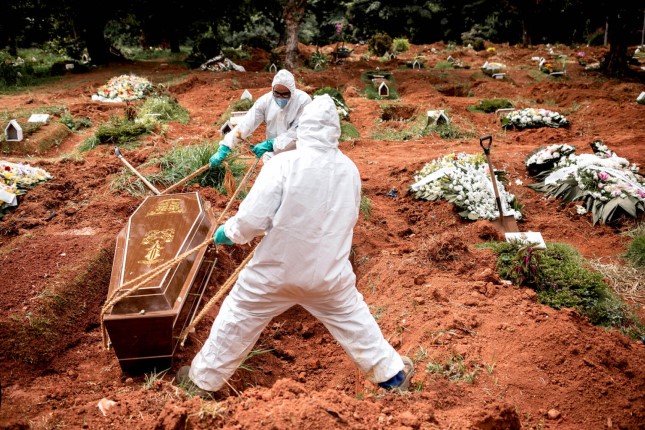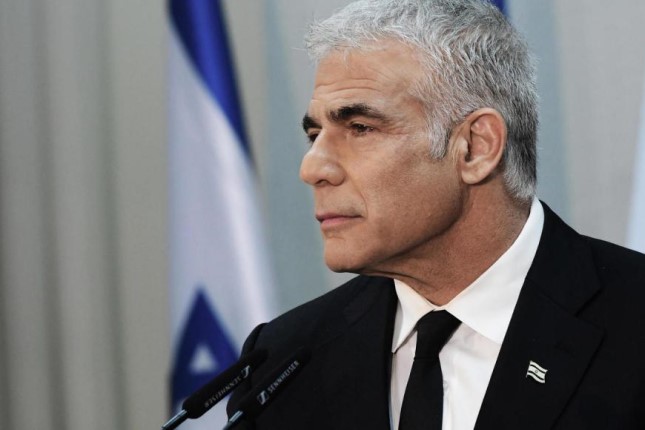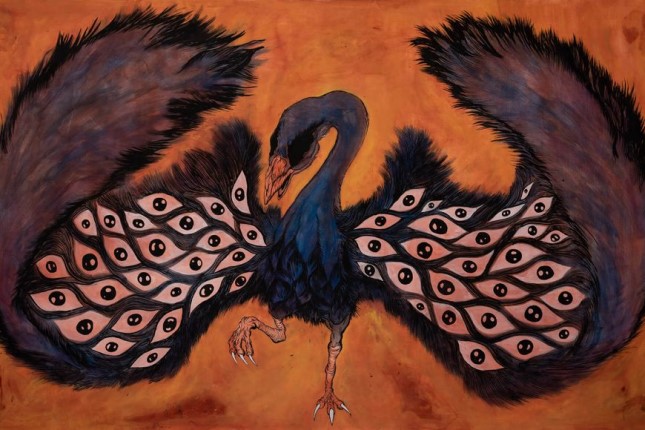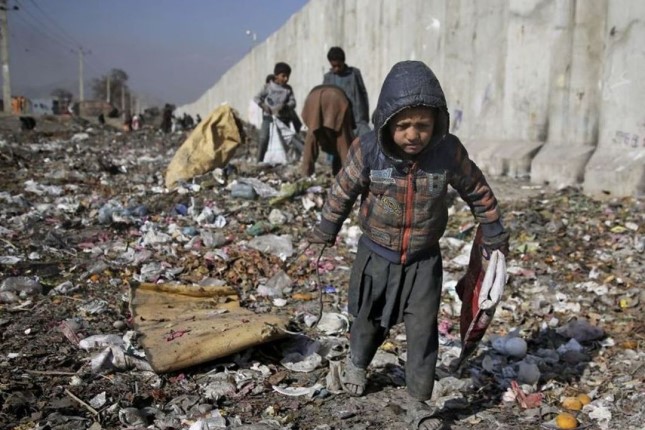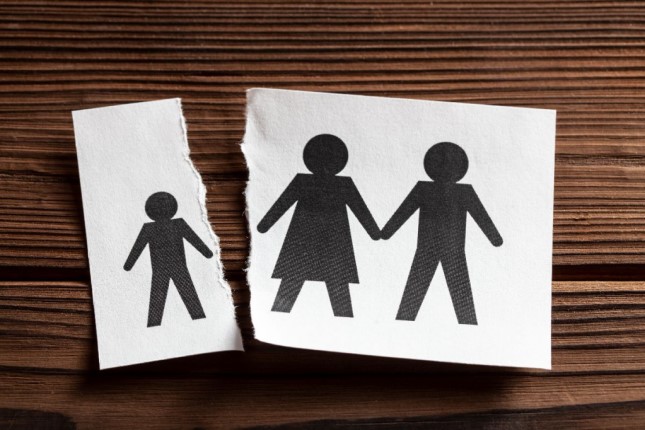It is part of a broader effort by the far-right government of Prime Minister Benjamin Netanyahu to whip up a climate of xenophobia and fear. Refugees, particularly Eritreans, have long faced discrimination at the hands of the authorities. They are now being subject to police violence and a concerted racist campaign based on propaganda and lies by a state that justifies its existence based on the monstrous crimes committed by the Nazi regime in Germany against European Jewry.
Netanyahu’s aim is to deflect rising the social discontent against his government among Jewish Israelis.
Fierce clashes broke out on Saturday morning between around 1,000 supporters and opponents of the Eritrean regime near the Eritrean Embassy in downtown Tel Aviv as well as in southern Tel Aviv, home to some of Israel’s poorest citizens, as well as migrants and refugees.
The Eritrean Embassy had organized a cultural festival to mark the 30th anniversary of the establishment of the state following decades of war against Ethiopia which had ruled the country after Italy’s defeat in World War II. Since 1993, President Isaias Afewerki has ruled Eritrea with an iron fist, presiding over a regime of arbitrary arrests, imprisonment, torture, persecution, rape and murder by government agencies.
More than 500,000 Eritreans (12 percent of the population) have fled the country and sought asylum elsewhere, according to the United Nations High Commissioner for Refugees (UNHCR). Even when living in exile, Eritreans have reported being harassed and threatened by the Eritrean authorities, while remittances to their families back home that constitute a massive 32 percent of the country’s US$8 billion GDP are often diverted to the Eritrean state.
There are around 18,000 Eritreans who, having entered Israel, mainly before 2013, as asylum seekers of whom only a small number are believed to be Afwerki supporters. In Israel, asylum seekers live without rights or access to healthcare, working in low paid, manual jobs. Just 1,000 requests for asylum have been reviewed and fewer than a couple of dozen applications accepted.
Representatives of Israel’s Eritrean community had asked for the event to be cancelled after explicit threats against regime opponents were posted on social media. They warned police that violence would likely erupt, citing events in Toronto where nine people were injured; in Sweden where 100 demonstrators were arrested and 50 injured; and Germany where hundreds of police using clubs and tear gas arrested 100 people. This led to Britain cancelling a similar event.
The Israeli authorities refused to cancel the event, apparently due to Tel Aviv’s close, if secretive, relations with the repressive state. This is despite tensions within the Eritrean community that have spilled over into violence: in 2019, when 20 asylum seekers were arrested in Tel Aviv, and most notably in 2020 when a regime supporter was stabbed to death.
When the expected violence broke out Saturday morning, with demonstrators smashing cars, shop windows and police vans, police responded with unprecedented violence. Wearing full riot gear, they used tear gas, stun and gas grenades and batons and fired live rounds and sponge-tipped bullets at the crowds. At least 170 people were injured, including 49 police officers. Of the protesters, 19 were seriously injured, including 15 from gunshot wounds. Fifty Eritreans were arrested. An investigation has been opened to determine whether the police’s use of firearms was lawful.
Netanyahu said he not only wants Eritreans involved in the clashes deported immediately, but all the country’s 27,000 African asylum seekers, mainly from Eritrea and Sudan. “We want harsh measures against the rioters, including the immediate deportation of those who took part,” he said, ordering plans to be prepared “for the removal of all the other illegal infiltrators.” He tied this to his campaign to curtail the powers of the judiciary, noting that the Supreme Court had previously struck down some measures meant to force people to leave.
Israel, despite being a signatory to the International Refugee Convention of 1951, refuses to grant refugee status to those who flee persecution, including to African asylum seekers, because it would lead to renewed demands for the right of return for Palestinians and their descendants who were forced from their homes in the wars of 1948-49 and 1967.
Designating the African asylum seekers as “infiltrators,” Israel says it has no legal obligation to keep them, defying international law that outlaws the forcible return of people to a country where their life or liberty is at risk. After various rulings by the Supreme Court that refugees cannot be forcibly removed, Israel has tried various ways of coercing them to leave. These include sending some to a remote prison in the Negev, later ruled illegal, withholding 20 percent of their wages until after they agree to leave the country, or offering cash inducements to those who agree to move to Rwanda. Together, these measures have resulted in more than 30,000 Africans leaving Israel. Few African asylum seekers have arrived in Israel since 2013, when Netanyahu erected a fence along Israel’s southern border with Egypt.
Israel allows anyone who can claim Jewish descent to live in Israel and become an Israeli citizen under the Law of Return. It even amended the law in 1970 to widen the definition of a Jew to enable Russian immigration to Israel. But it refused for decades to recognise the right of Jews from Ethiopia to immigrate to Israel. Many to this day experience racist discrimination and poverty, while around 10,000 are still “waiting” to immigrate to Israelaround 7,000 in Gondar and 3,000 in Addis Ababa.
On Sunday, Netanyahu said the government would draft a new immigration law to override the restrictions imposed by the Supreme Court. He described “the massive infiltration of illegal workers from Africa” as “a tangible threat to the character and future of the State of Israel as a Jewish and democratic state.”
As well as extending Israel’s high-tech fence with Egypt, he announced, “Now we will build a fence on our eastern border [with Jordan] and ensure that there will be no infiltration from there either.” The purpose of such a fence that would cost hundreds of millions to upgrade can only be to further isolate and blockade the West Bank, illegally occupied by Israel since 1967.
National Security Minister and the fascistic leader of Jewish Power Itamar Ben Gvir is planning to introduce a law that would enable the indefinite detention without trial and/or the mass deportation of people that entered Israel “illegally.” Overriding Israel’s 1992 Basic Law: Human Dignity and Liberty, would intensify Israel’s constitutional crisis.
The 53 Eritreans arrested were detained in custody on remand, only to be placed in administrative detention in Givon Prison for 60 days, a period that can be renewed repeatedly, apparently on Ben Gvir’s orders. He was anxious to avoid pressing criminal charges, both because the police evidence was weak and because this might prejudice their being deported to a third country.
On Wednesday, the first 10 Eritreans appeared before an administrative tribunal that served to expose the police’s lack of evidence, and their own criminality—detaining them on suspicion of holding an “illegal gathering” that should not result in police detention—and inhumanity. One detainee hobbling on one leg, without crutches, his other leg having been torn apart by a bullet, told the judge as he choked back tears, “I was in bed in the hospital. Policemen came, took out my infusion and told me come. I’m still hurting and I don’t sleep at night, I thought this was a democracy. We’re people like you, human beings.”
Margalit Cohen, a lawyer for the detainees, read from the transcript in court, “The police had nothing, no evidence against any detainee... why did you arrest him? Because he’s Eritrean? Because someone had to pay to restore the police’s lost honor?”
A regime of mass deportations and administrative detentions, long used against the Palestinians in the Occupied Territories, is a threat to workers of all national origins, regardless of immigration status, and will inevitably be used against Israeli workers as well.
Photo: Israeli riot police attack Eritrean protesters in Tel Aviv, Israel, Saturday, September 2, 2023 © AP Photo / Ohad Zwigenberg.
Source: World Socialist Web Site.
